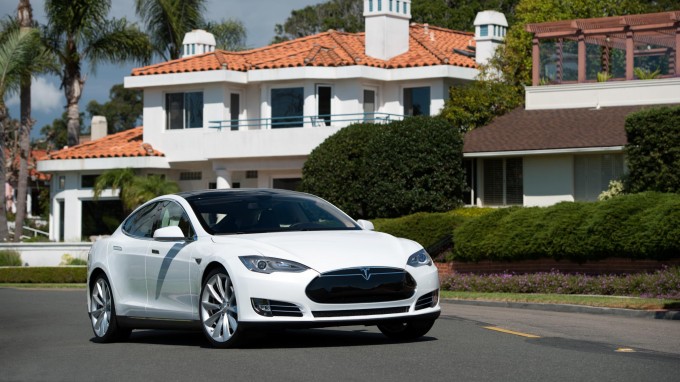- Qualcomm Launches Snapdragon 4 Gen 2 Mobile Platform
- AMD Launches Ryzen PRO 7000 Series Mobile & Desktop Platform
- Intel Launches Sleek Single-Slot Arc Pro A60 Workstation Graphics Card
- NVIDIA Announces Latest Ada Lovelace Additions: GeForce RTX 4060 Ti & RTX 4060
- Maxon Redshift With AMD Radeon GPU Rendering Support Now Available
Tesla Model S Promises UK Cross Country Trip with One Extra 20-Minute Recharge
I don’t know about you, but electric cars don’t really, um, electrify me too much.
I mean, I like “green” solutions as much as the next guy, but I’m too selfish to give up my passion for all things automotive. Electric cars, as capable and as clean as they are, just aren’t as visceral as their internal combustion engine-powered counterparts. Electric cars don’t sound like petrol-powered cars; they don’t have manual transmissions (which I adore – I swear I will never buy a car with an auto box for as long as stick-shift options exist), and you can’t work the clutch yourself.
What’s more, electric cars are traditionally very heavy (because of its battery packs), which limits their range (increasing range potential means increasing the number of batteries, thereby perpetuating a vicious cycle). And recharging those batteries is also inconvenient. Charging stations are relatively rare, and it takes hours to even just partially charge drained batteries.
But Palo Alto-based Tesla Motors has something in the works that made me perk up a bit.

Tesla is set to launch its RHD (right-hand drive) Models S in the British market next month, but that’s not what’s grabbed my attention. What did, though, is Tesla founder Elon Musk’s claim that its cars will also be able to cross the length of Great Britain with one 20-minute top-up recharge.
Musk said that the Model S should be able to go 300 miles on a single charge of its batteries. What would allow the electric sedan to be able to cross the length of Great Britain, though, is Tesla’s plan to greatly improve that country’s electric recharging capabilities for its cars. Tesla is building a network of super-charging stations along a so-called “electric highway” from Dover and Bristol to the M25, as well as north along the length of the M1. What’s more, Tesla claims its cars can gain up to 130 miles from a 20-minute recharge. Thus, with one recharge, a Model S should be able to go completely across Great Britain.
These enhancements, Tesla says, should alleviate the “range anxiety” motorists get which stems from the hitherto inferior potential range of electric vehicles. Tesla believes that conquering this range anxiety in consumers is the key to its cars’ popularity in Great Britain.
If Tesla is able to execute its plan, its cars should dominate the electric-powered car market. Already in California, similar upgrades to the electric car charging infrastructure has helped the company’s Model S become the third highest-selling luxury car in the state.



